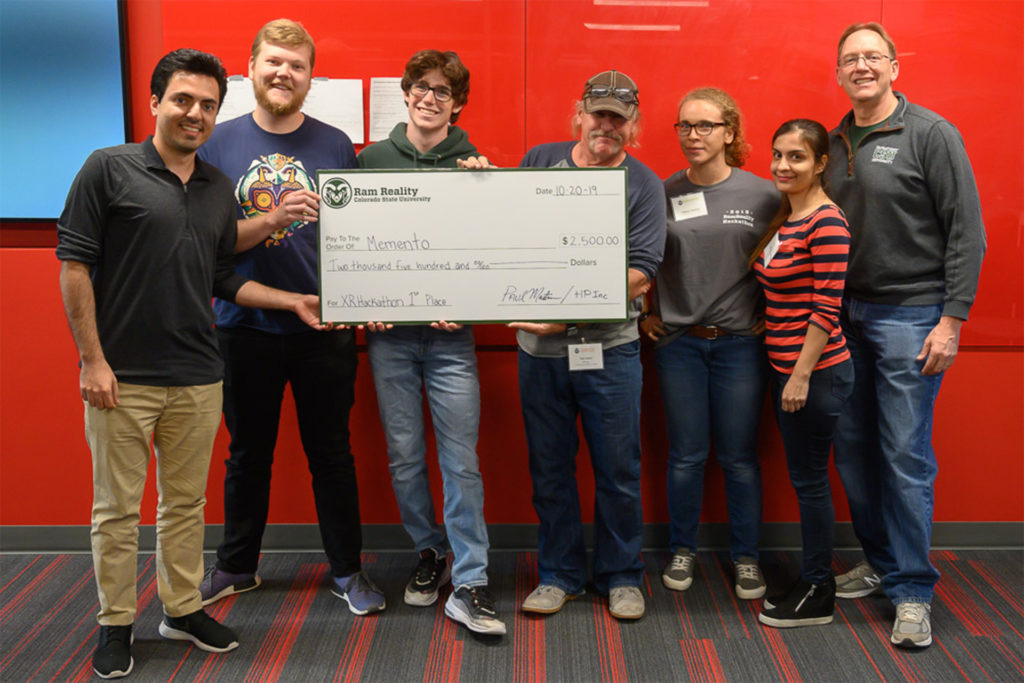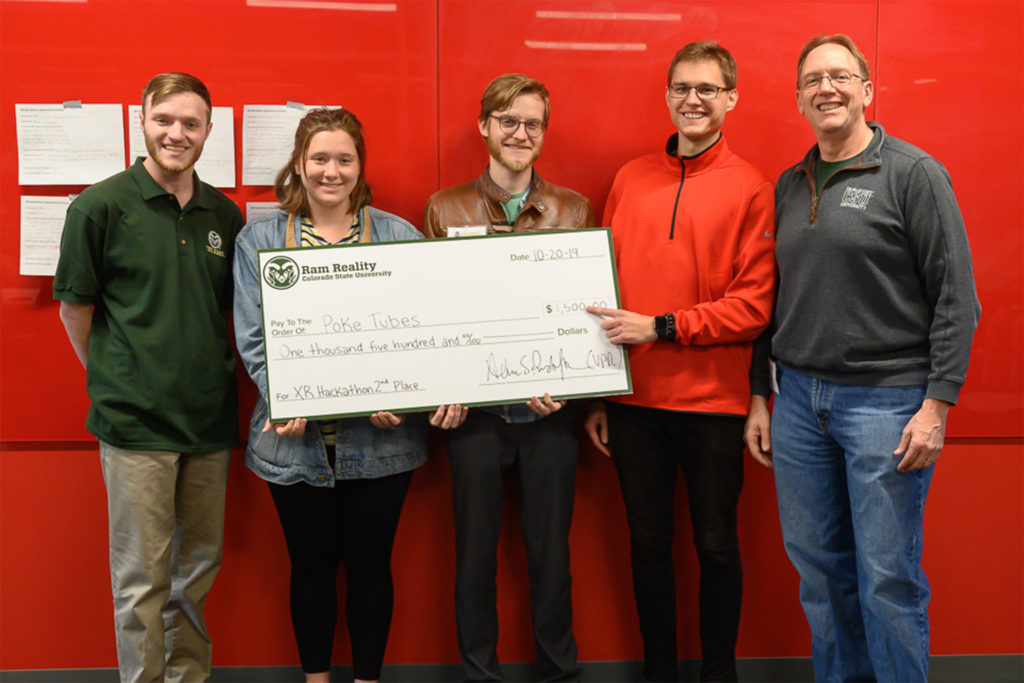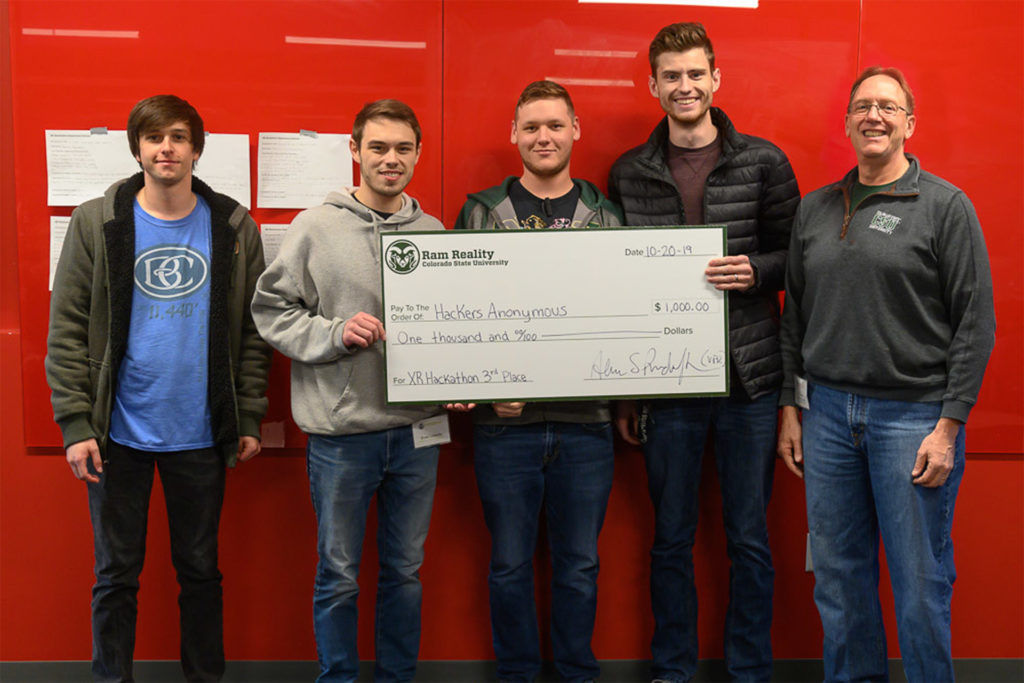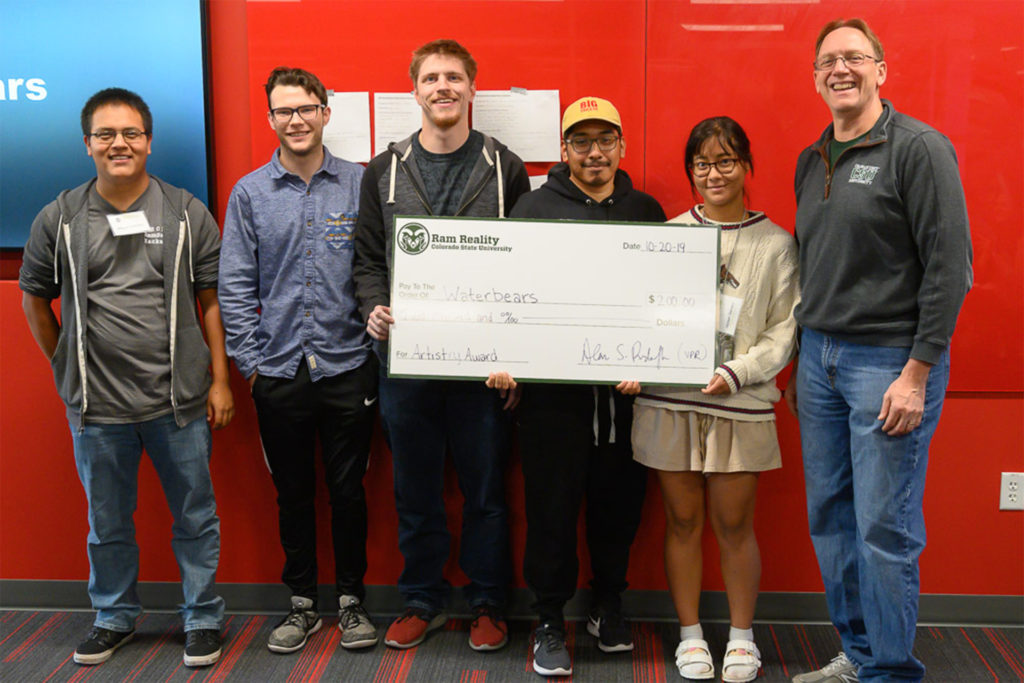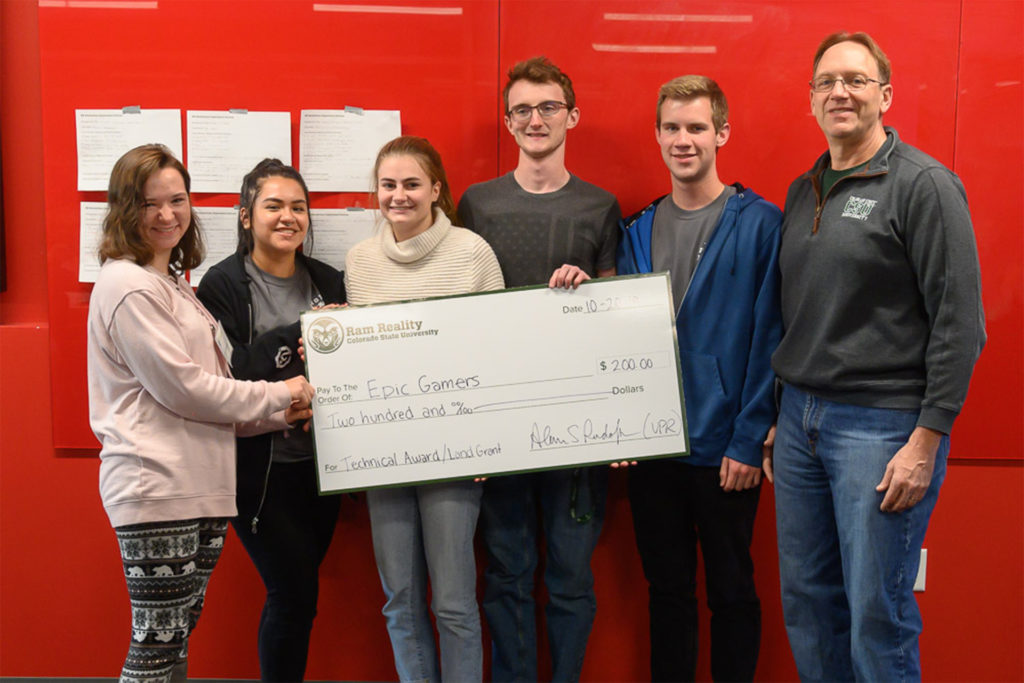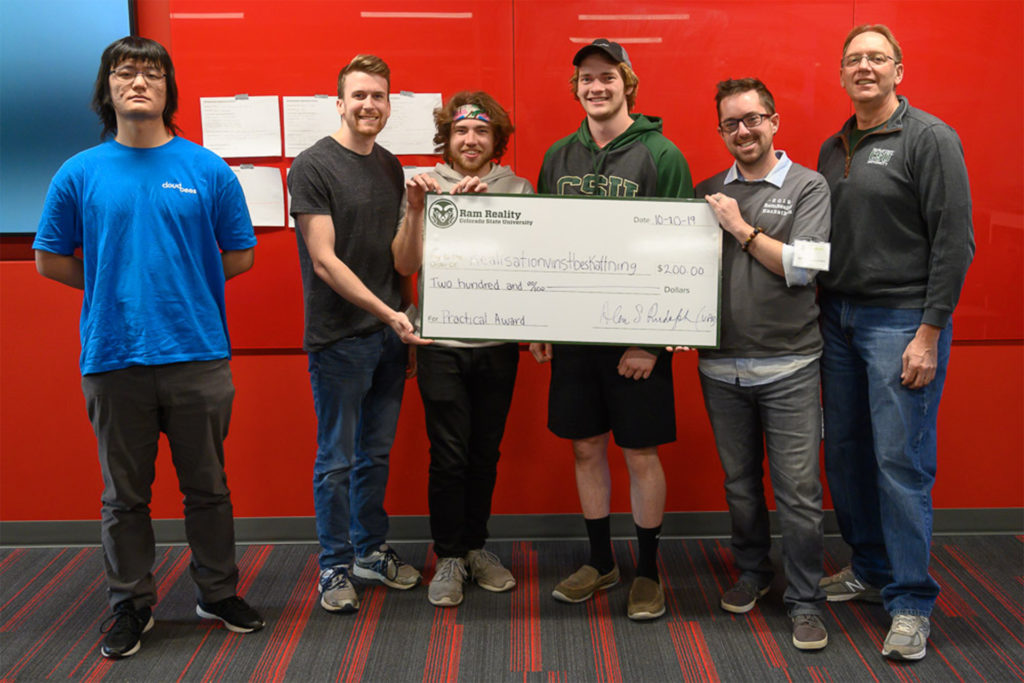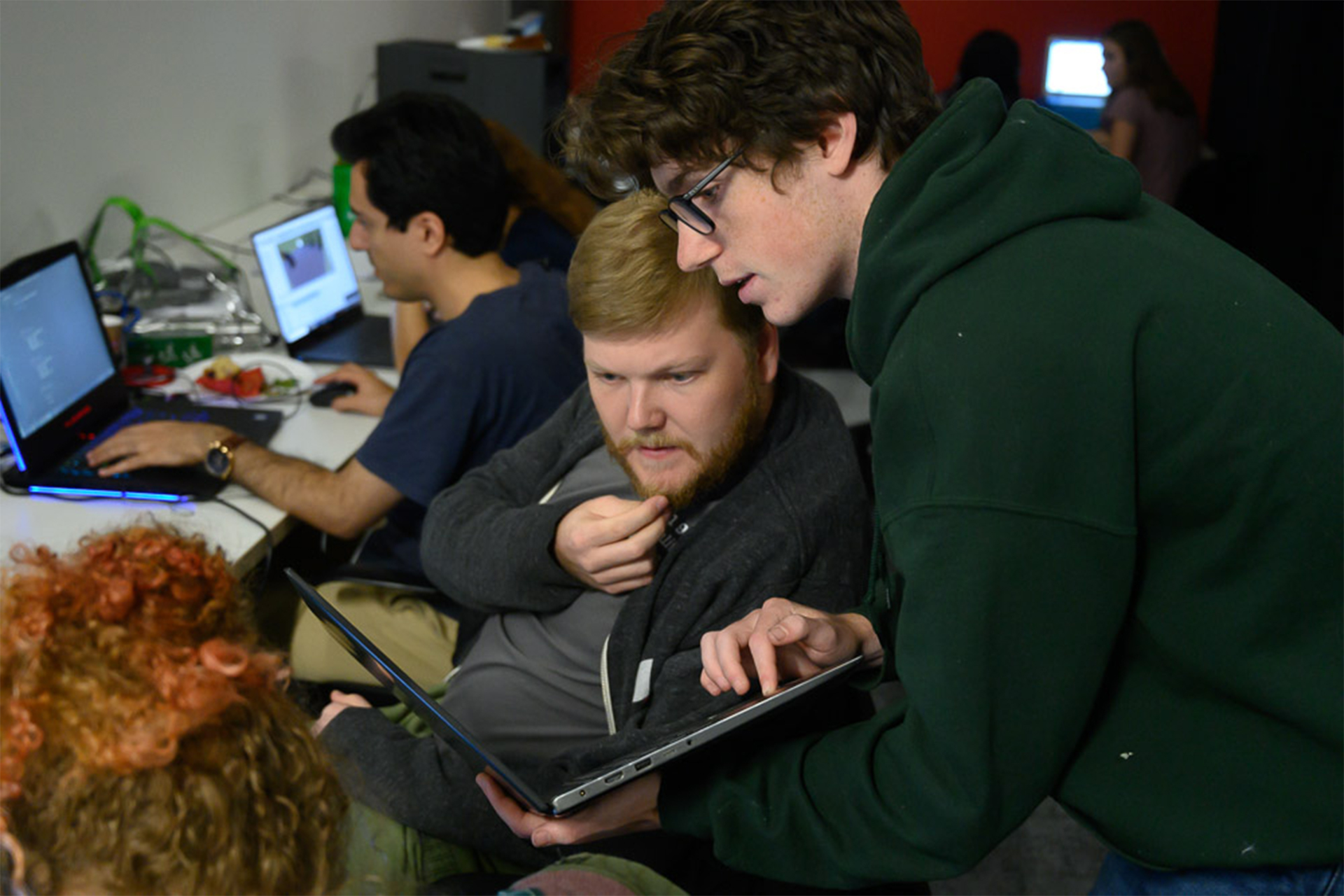
Team Memento took home first place in the fourth-annual CSU RamReality Hackthon.
Thirty participants from Colorado State University and Front Range Community College worked in six teams to develop virtual reality experiences from scratch in one weekend at the fourth annual CSU RamReality Hackthon.
The event, sponsored by HP, the Office of the Vice President for Research, CSU Online and CSU Ventures, concluded Oct. 20, with one team going home with a check for the $2,500 first-place prize.
Teams not only faced technical challenges but also a looming time limit.
RamReality Hackathon
To learn more about all of the teams, participants and projects developed during the weekend, visit research.colostate.edu/create/2019-winners.
First-place winner
Team Memento won first place with a virtual reality program designed to allow the user to perform everyday tasks as an impaired individual. Experiences in the project included crossing a street and going to the grocery store.
“Team Memento very credibly explored the real-world challenges of a visually-, hearing- and mobility-impaired individual using a VR simulation,” said HP Chief Technologist for Mixed Reality Paul Martin. “Their experience was excellent at stimulating empathy in the participants and was surprisingly complete, especially given the 48-hour time constraint they and the other teams faced.”
Martin explained that Team Memento created a great example of the promise of immersive technologies in improving the lives of people around the world.
The idea for the “VR Impaired” project was submitted by Nicole Ehrhart, director of the Columbine Health Systems Center for Healthy Aging.
Campus faculty and staff were invited to submit ideas for the virtual and augmented reality projects developed during the Hackathon. Thirty-seven ideas from colleges across the university were submitted to the event idea board and six projects were chosen.
Other honors
The second-place prize went to The Poke Tubes, who developed “Vectors of Death,” a virtual game from the viewpoint of a mosquito. The game’s goal is to suck blood and viruses from humans, the more viruses collected the higher your score. Brian Geiss in the Department of Microbiology, Immunology and Pathology was the sponsor behind this game.
Hackers Anonymous took home third place and created a virtual animation that takes a viewer on a virtual time machine trip by illustrating change in mountainous landscapes. This project idea was submitted by Ellen Wohl in the Department of Geosciences to use as a tool for teaching.
Team Waterbear received the Outstanding Artistry Award for creating a colorful, virtual environment where the player is a microbe that can explore an underwater environment. Erika Szymanski in the Department of English submitted the idea for this virtual experience.
The Outstanding Technical/Land-Grant Award went to the Epic Gamers team, who created an experience submitted by Deana Davalos in the Department of Psychology. The team built a virtual experience for older adults to allow them to travel to a diner.
Team Realistionsvinstbeskattning won the Practicality Award for creating an experience that would most likely become a product. The team created a mobile augmented reality application to interactively learn about the Nancy Richardson Design Center. This project idea was submitted by Laura Malinin, the director of the Nancy Richardson Design Center and Lea Scolere in the Department of Design and Merchandising.
